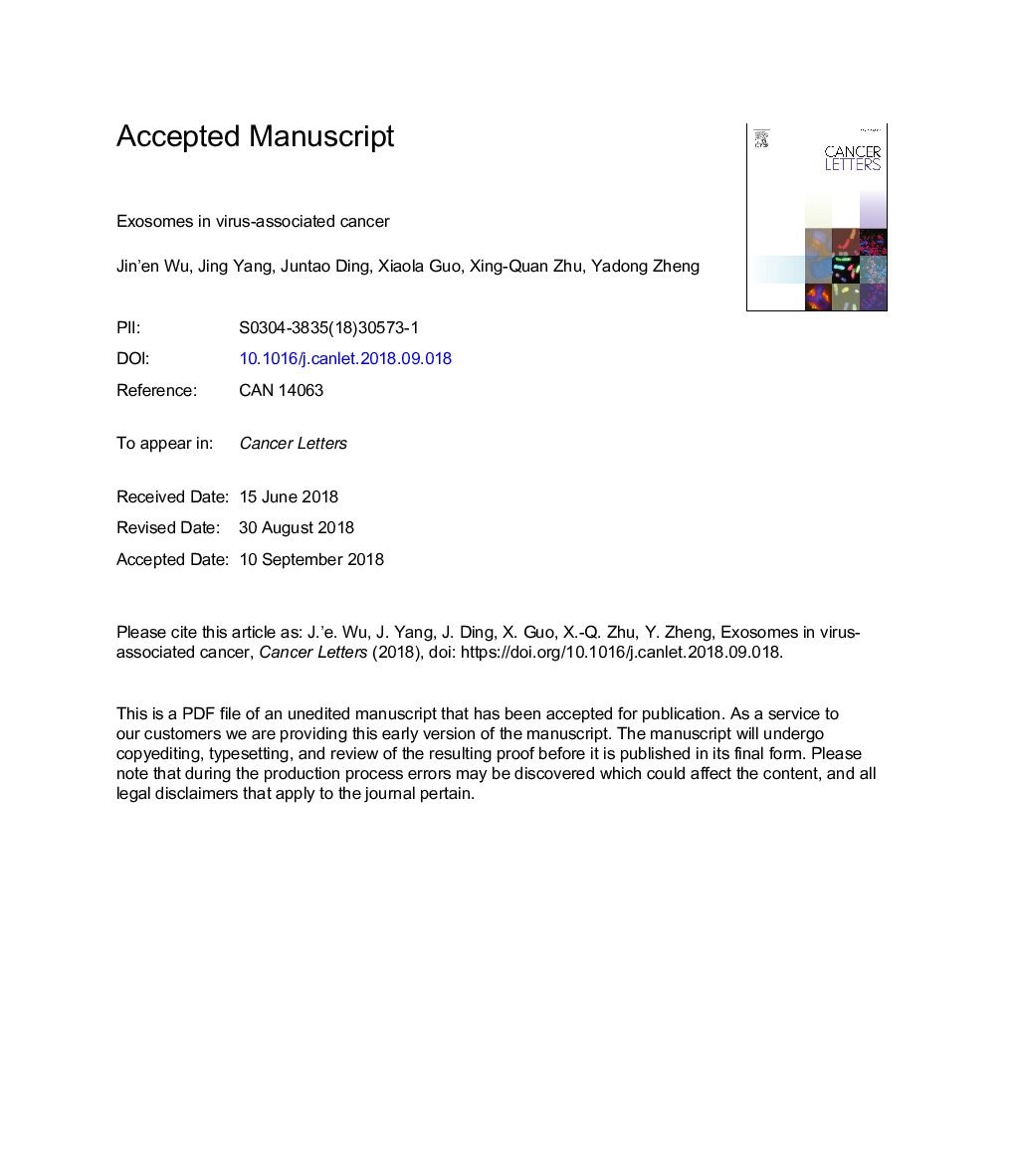| Article ID | Journal | Published Year | Pages | File Type |
|---|---|---|---|---|
| 10157494 | Cancer Letters | 2018 | 30 Pages |
Abstract
Exosomes are phospholipid bilayer membrane-enclosed vesicles in a size from 30 to 150â¯nm, carrying a variety of active components, such as proteins, mRNA and miRNAs, and are involved in intercellular communication. Exosomes are released by almost all living cells and detected in various biological fluids. Viruses especially oncogenic viruses have been reported to influence the formation of virus-associated cancer through reshaping the tumor microenvironment via exosomes. In this review, a role of exosomes released by oncogenic virus-infected cells in promoting or inhibiting cancer formation is outlined. Moreover, the prospects and challenges of exosome applications in cancer therapies are critically discussed.
Keywords
NF-κBmiRNAsExosomeHuman foreskin keratinocytesESCRTHSCsMVBSLMPsKSHVHBxFGF-2epithelial mesenchymal transitionEBVEMTHepatic stellate cellsfibroblast growth factor 2nuclear factor kappa Bhepatitis B virus X proteinHBVHepatitis C virusHCVEpstein-Barr virusKaposi's sarcoma herpesvirushepatitis B virusHuman papillomavirusHPV
Related Topics
Life Sciences
Biochemistry, Genetics and Molecular Biology
Cancer Research
Authors
Jin'en Wu, Jing Yang, Juntao Ding, Xiaola Guo, Xing-Quan Zhu, Yadong Zheng,
